Food everywhere, but nothing to eat: Timor-Leste is going hungry and the answer may be innovation
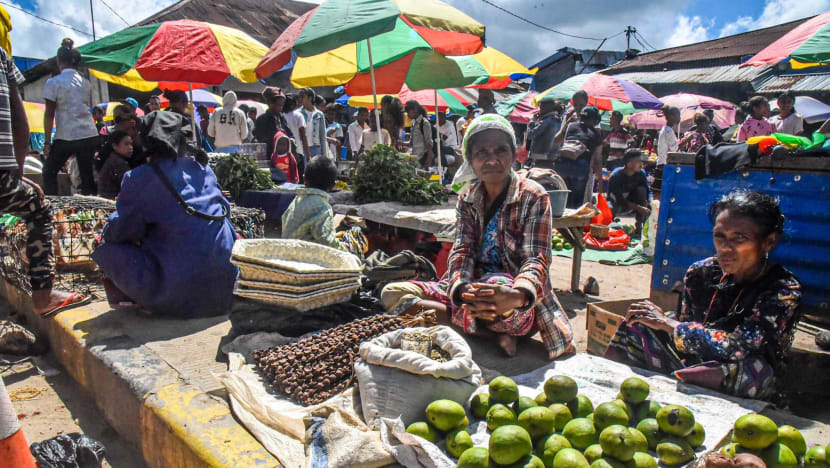
A local weekend food market in the mountain town of Maubisse. (Photo: Jack Board)
DILI: When Filipe da Costa started to learn about the health of his nation, he was confused.
By most measures, Timor-Leste was falling into the “red zone” - whether in terms of child stunting, malnutrition or brain cognition. And it was all linked to the food people were eating.
“I was thinking, in the past, this problem was probably not as severe. Something was different about our diets. The way our grandmothers prepared food is way different from now,” said the Advisor of Food Security and Nutrition to the Prime Minister.
A visit to any food scarce rural village - common in Timor Leste - reveals a major shift in diets. The food and cooking methods that have sustained local people for generations are being lost.
“I remember in the past, we had wild beans, wild papaya, tamarind and mangoes. But now it’s difficult to find those wild foods. Maybe the environment has changed,” said Abio Coreia, a subsistence farmer on the remote island of Atauro.
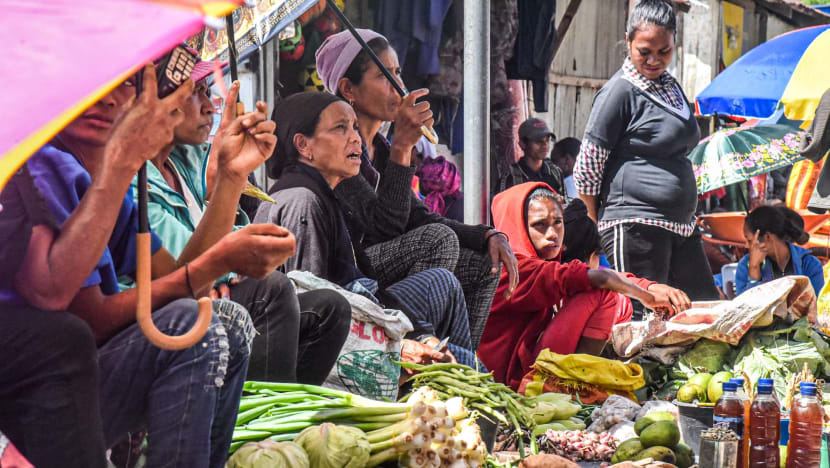
“In the past, corn and beans were foods we ate every day. Now we have rice. It’s easy to buy in the market,” he said.
As the small island nation comes to terms with a fast-changing climate, its ability to feed itself is becoming more strained.
Long dry seasons and inconsistent rain, combined with behavioural shifts that devalue traditional knowledge of food means this young country is going hungry.
But a movement is growing - among small restaurants, food labs, micro-distilleries and artisanal producers - to elevate Timor’s native cuisine and ingredients. It has a small footprint for now, but the objective is ambitious.
A 2018 IPC report by national and government partners found that only a quarter of the country’s population is food secure.
It showed that 36 per cent was chronically food insecure, defined by a long term inability to meet food consumption requirements. Some 175,000 people were suffering from a severe level of food insecurity.
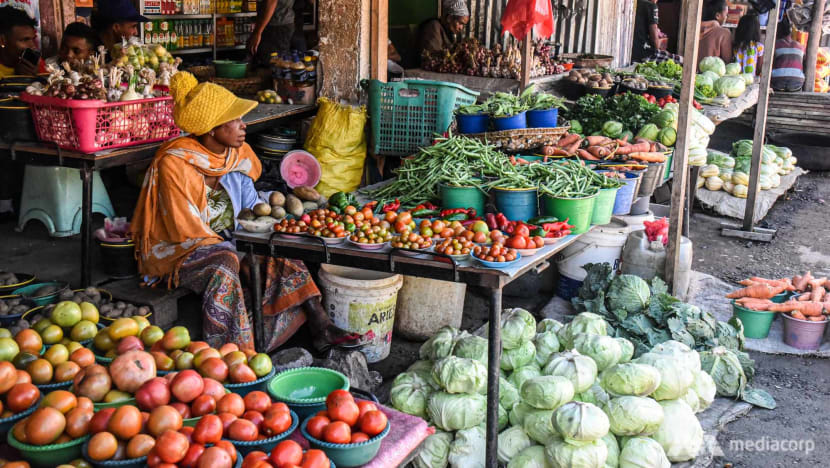
The driving forces behind the nation’s hunger vary by province. But in general, locals are not accessing or consuming the right types of food. Nutrition is poor, blamed on an increasing dependence on low-quality imported foods, like subsidised white rice and, especially, instant noodles.
Old knowledge is being discarded for the trappings of a modernising society, where a bowl of instant noodles on the family table is more prized than native or foraged, wild food that Timorese have depended on for generations.
“We have a lot of food out there but we have left it behind. People say they don’t have rice to eat, or corn to boil. Food insecurity is a mindset and there are many abandoned foods out there,” da Costa said.
The result is troubling levels of malnutrition, anaemia and impacts on brain development among young children. Levels of hypertension, heart disease and obesity are on the rise.
READ: Commentary - Reborn from ashes of independence, Timor-Leste rebuilds 20 years on
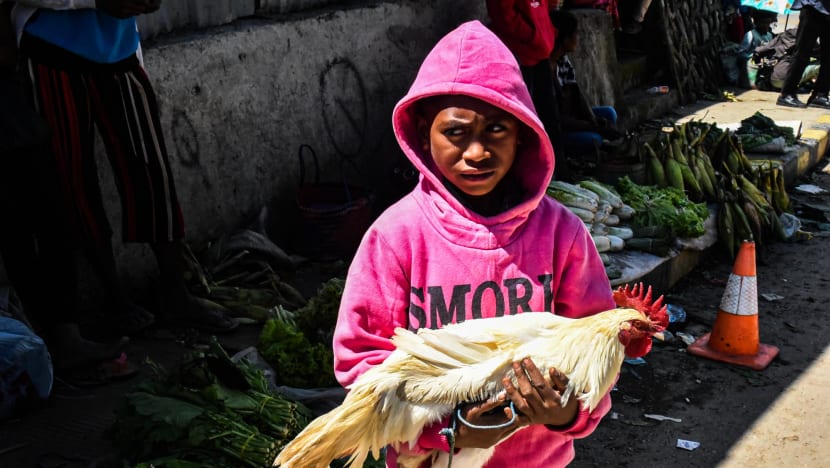
At the same time, natural resilience to a warming world is on the wane.
Climate change is applying more pressure on subsistence food producers. In Timor-Leste, rainfall in 2019 was its lowest in a decade. By the end of the century, experts in the country have predicted a 3 degree temperature increase, which would have devastating effects on the country’s agriculture capabilities and the magnitude of natural disasters, including drought and floods.
In parched villages, regular planted crops are struggling in the conditions. At the same time, native food is proving more difficult to access and cultivate. It is fuelling a dependence on produce bought from markets.
Wild food like leaves, yams and mushrooms traditionally kept Timor-Leste nourished, through years of conflict and occupation.
Much of this foragable food - and the ways it can be cooked - is endemic. For example, on the island of Atauro, locals source natural salt by using sea rocks to flavour soups and other communities use generational knowledge to remove toxins from beans by boiling them for 12 days.
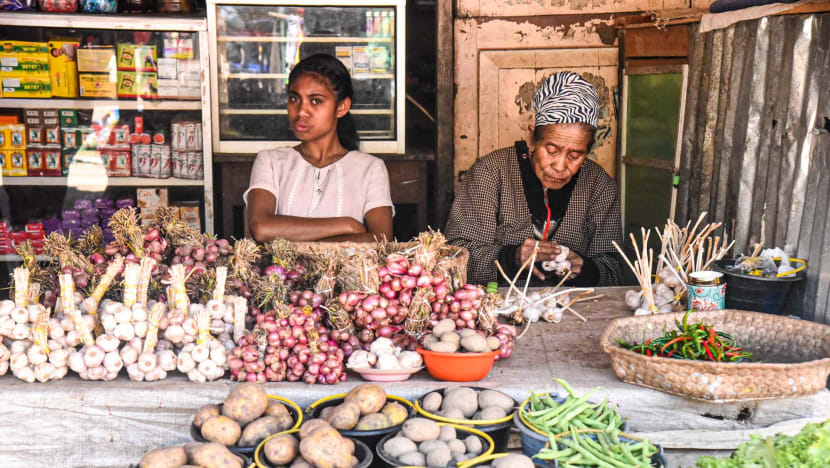
“People grew up with these foods in the past. They would use these foods a lot. Now we have a lot of imported products so it’s hard for the young generation. But we have to do something,” said Julio da Cunha, a young food innovator from Manatuto.
FOOD RESEARCH AND INNOVATION KEY TO THE FUTURE
At social enterprise, Agora Food Studio, food experimentation driven by innovation is attempting to empower young Timorese like da Cunha to look back, collaborate and harness the power of what nature has provided for this land.
The team comprises young cooks from around the country - diversity by design. “We work here, but we go to the mountains and we experiment. And we understand that our food has value,” said da Cunha.
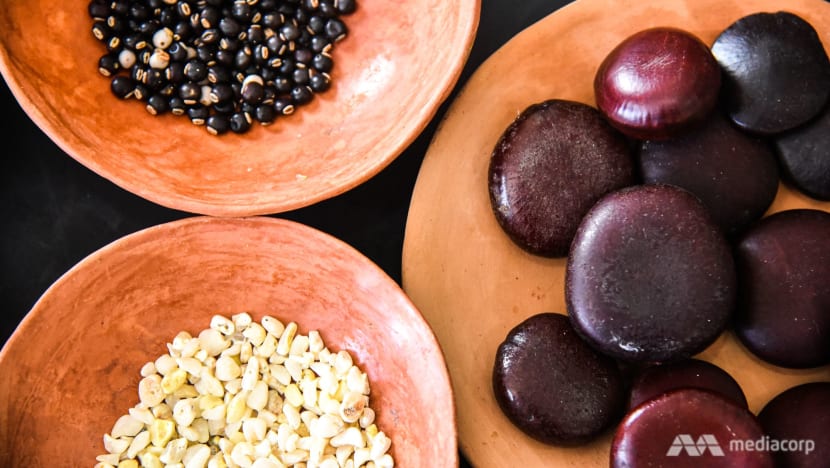
“Innovation is very important, making something new. We can’t just boil a sweet potato in a pot anymore.”
The 23-year-old is working on a project to make and package noodles - dubbed Mie Marungi - made from pumpkin, moringa and sweet potato as a viable and healthy replacement for the ubiquitous instant variety and sachets of MSG seasoning.
It is an example of Agora encouraging its staff to build up creative techniques that harness the techniques that have helped Timor communities survive in remote and harsh environments.
“It’s that knowledge and skill that we’re learning is important for the future. Reliance on processed food is changing diets, taste preferences and health and leads to more vulnerable populations,” said Alva Lim, Agora’s co-founder and director of food research and innovation.
“So sharing the knowledge evolved over generations before it gets lost is our team’s mission.”
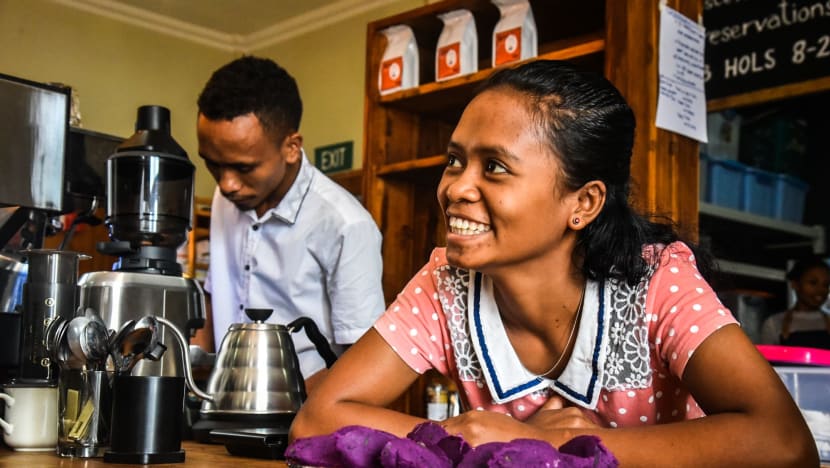
READ: Commentary - COVID-19 affects the choice and price of food available to us
MAKING TRADITIONAL FOOD VALUED AGAIN
The project is also trying to make Timorese food a point of pride on any table, in any village.
Da Costa, the advisor to the prime minister, has spent years examining Timor-Leste’s food problems. He said that while visiting hundreds of villages around the country, he found that many people have grown ashamed of their own typical food.
“There are choices that we no longer utilise because people believe this type of food is for the poor. It’s not nice to present on the table when guests are around, or it’s not wise to give to your kids, or there is a stigma about the food or it’s time consuming to prepare in a certain way,” he said.
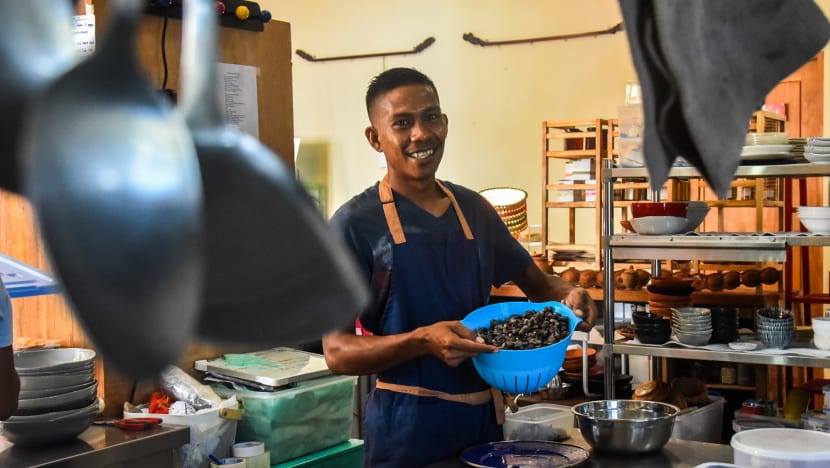
“Can we make that food valued again? People need to go back to their original ways of living. We want food that people have hidden away to come back out onto the table, bringing innovation to make it look rich, nutritious and have value.”
Given the country’s political instability over the past three years, government progress in reaching more communities, more often, has been derailed.
Da Costa admits financial resources, tools and facilities, and nutrition experts are all currently lacking in Timor-Leste to sufficiently tackle the problem.
“We are stepping back a lot instead of moving forward. But I think the enthusiasm is still there,” he said.
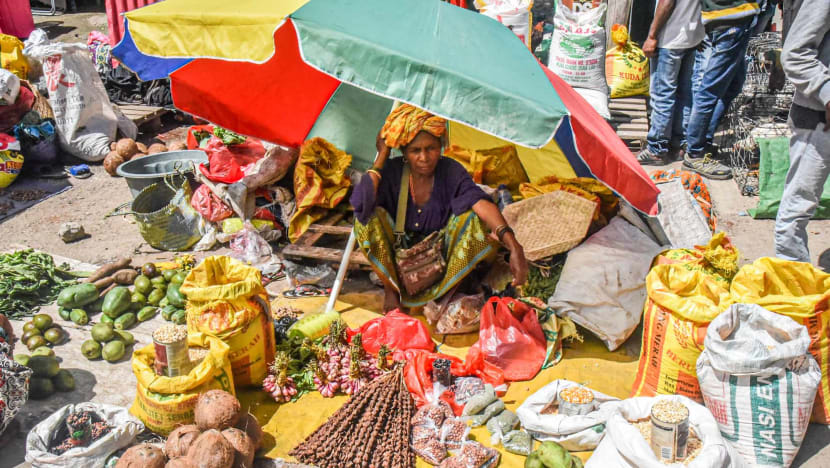
In the meantime, private enterprise in the capital Dili is slowly starting to explore the possibilities of a foraged food movement - both for its taste benefits and a means to increase resilience among vulnerable food producing communities.
Restaurateur Cesar Trinito Gaio operates Dilicious, which aims to serve only locally-sourced food and runs gastronomy classes with native ingredients.
He dreams of operating a roaming food truck to educate people across the country about the benefits and taste of local food, and hopes to further explore the possibilities of farm-to-table dining and agri-tourism.
At Distillery Lokal, Gobie Rajalingam “explores Timor-Leste’s drinkable biodiversity” through a boutique range of root-based sodas, wild ferment, raw honey meads and traditional botany and bark-based vermouths with ingredients sourced directly from producers, whenever possible.
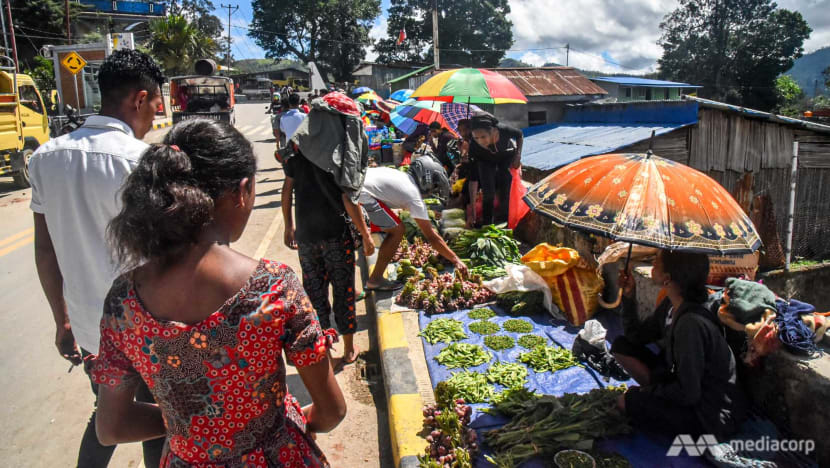
“By thinking about where we spend our money - be it as a distillery, a restaurant, a cafe or as a consumer we make a choice about the type of food system we wish to support,” he said.
“We also make a choice about whether we value native ingredients or not and whether we are happy with the loss of food traditions, culture and identity that may follow if we do not ensure resilience of food and community systems.”
There is a growing understanding that time for action is limited.
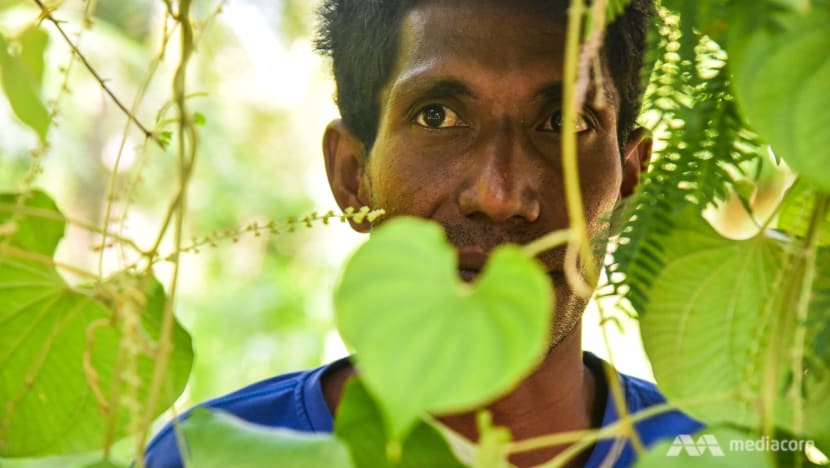
“Now we’re in an intergenerational period - the people who used to collect wild foods are still alive, and we also have the new generation who never did it. So we need to have this bridge connected,” da Costa said.
“Climate change can only be mitigated if we arm people with knowledge, value their knowledge and appreciate their food.”














